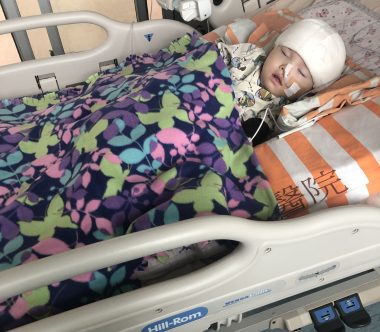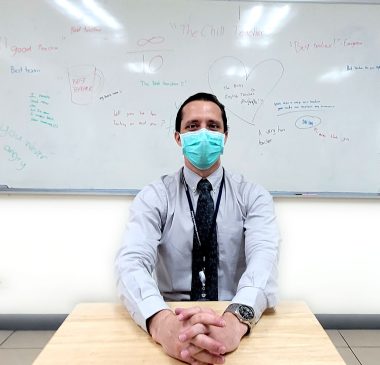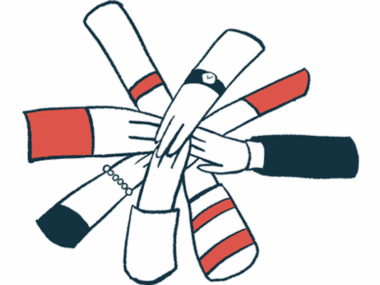How I Stay Motivated and Energized as a Rare Disease Caregiver and Advocate
Self-care and maintaining other interests are important for rare disease advocates
Written by |

At 5:30 a.m., I quietly sneak out of bed, wash, dress, and straighten my tie. As I finish getting myself ready, my wife and daughter wake up to start their morning routine. With kisses all around, I make my way out the front door and escape to my world away from rare diseases.
During a discussion with Ivana Badnjarević, founder of Lil’ Brave One Association, an organization in Serbia that provides information and support to families of children with neurometabolic disorders, I described the guilty feelings I had about this daily escape, and how I was trying to find a way to transition away from my education profession so that I could be fully dedicated to our rare disease efforts. The discussion did not go as planned, which turned out to be beneficial for me.
My world away from rare diseases
This academic year, I work full time from Monday to Friday as a middle school principal at an international school in Thailand. I have had a lot of success and happiness in my profession, including a recent promotion to principal. I look forward to the challenge and the reward of student success.
Before our daughter, Rylae-Ann, was born, I dedicated all my efforts for more than 10 years to the education sector. This required investing in two master’s degrees. After Rylae-Ann was born, she was diagnosed with aromatic l-amino acid decarboxylase (AADC) deficiency. Our professional careers were put into a holding pattern.
Our rare disease world
With our motivations redirected to helping our daughter, it was an easy decision to make without thinking twice. We spent a lot of time connecting with support groups, organizations, and fellow rare disease families. My wife and I began the difficult journey of managing the severe symptoms of AADC deficiency while learning about the rare disease community.
Several months before Rylae-Ann turned 2, we were fortunate to enroll her in a clinical trial for gene therapy, a lifesaving novel procedure that holds hope for many in the rare disease community. The results have been nothing short of miraculous, and we knew we had to give back to our community.
We created a nonprofit organization that provides educational services to help families with rare diseases, undiagnosed diseases, and special needs accomplish therapy goals through play-based and multisensory approaches. In addition, we attend awareness events and provide presentations to health professionals. Finally, I write a weekly column for Bionews, an extraordinary organization dedicated to rare disease news and information and the parent company of AADC News.
I enjoy all that we do, and it seemed like the next step was to fully transition and dedicate our time to rare diseases — to say goodbye to all the work we put toward our professions and restart our careers.

After Rylae-Ann was diagnosed and received gene therapy, her parents became dedicated members and advocates of the rare disease community. (Courtesy of Richard E. Poulin III)
Having a world to escape to
This is when I confided with Ms. Badnjarević. She shares a very similar story. Her daughter suffered from the rare neurotransmitter disease tyrosine hydroxylase deficiency. Badnjarević found limited information and resources but managed to help her daughter receive lifesaving medication that treated the severe symptoms that are nearly identical to AADC deficiency.
As a result of her experience, she formed her nonprofit organization in 2016. She has expanded her outreach internationally, which is how we crossed paths.
Because she is an inspiration for us about how we might proceed, I asked her for advice about knowing when the right time is to make the switch. She surprised me by saying that she needed her world away from rare diseases to decompress. This separation allowed her to actually be better motivated.
It seemed counterintuitive that you have to keep both worlds to be more productive in each. She explained that for her, having the time away was necessary for her personal goals. We do not have to sacrifice ourselves to help our community. By caring for ourselves, we have the patience, energy, and compassion necessary to make a difference.
I will keep my world away from rare diseases to take a break and concentrate on my personal goals. In the future, this may not always be the case, but for now, I will continue my guilt-free escape. I have since decided to pursue a doctorate in education, so for the next few years, I am committed to my world.

Richard poses in front of surprise messages from his students thanking him and wishing him a wonderful summer. (Courtesy of Richard E. Poulin III)
Note: AADC News is strictly a news and information website about the disease. It does not provide medical advice, diagnosis, or treatment. This content is not intended to be a substitute for professional medical advice, diagnosis, or treatment. Always seek the advice of your physician or other qualified health provider with any questions you may have regarding a medical condition. Never disregard professional medical advice or delay in seeking it because of something you have read on this website. The opinions expressed in this column are not those of AADC News or its parent company, Bionews, and are intended to spark discussion about issues pertaining to aromatic l-amino acid decarboxylase deficiency.







Leave a comment
Fill in the required fields to post. Your email address will not be published.